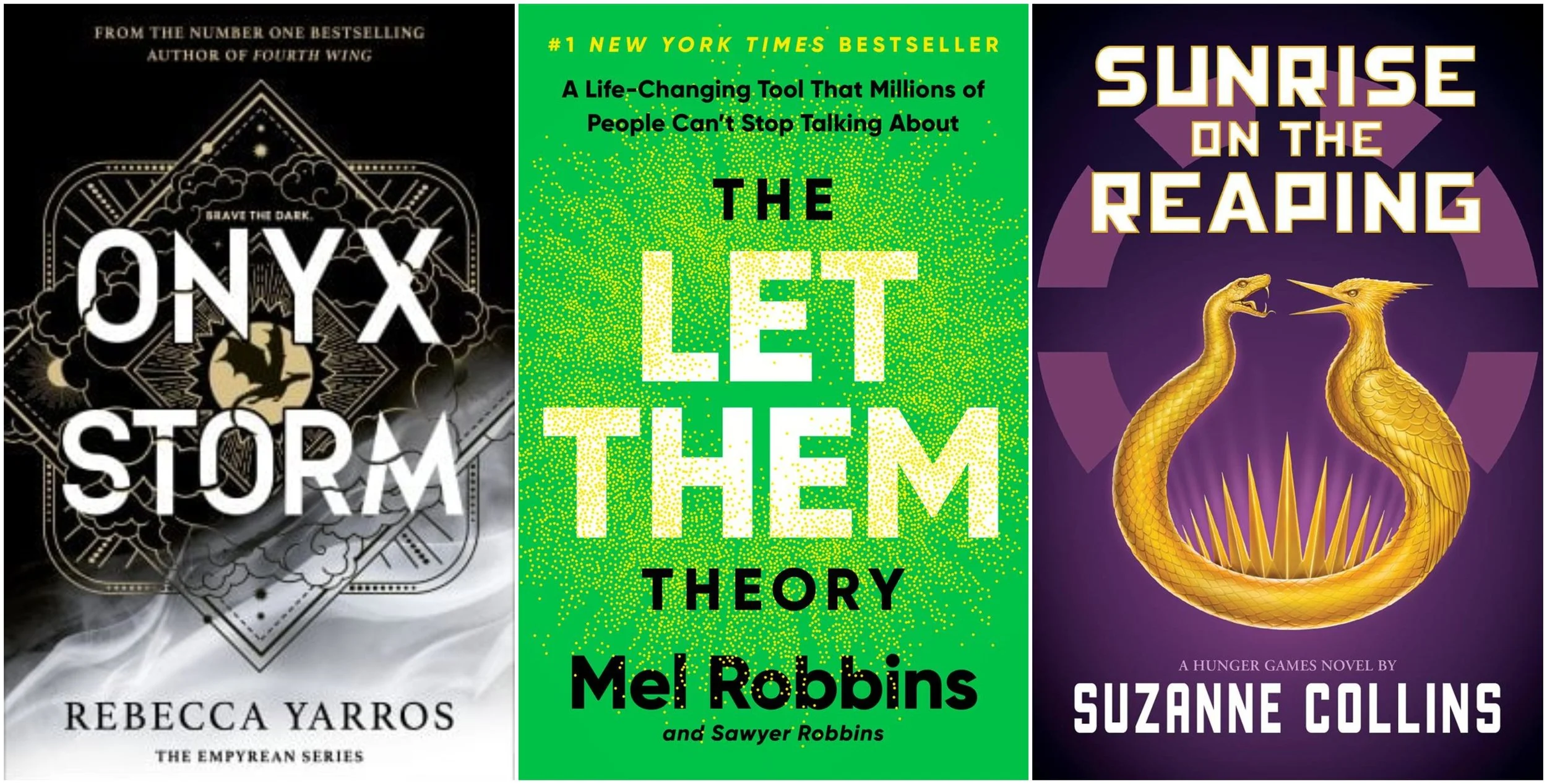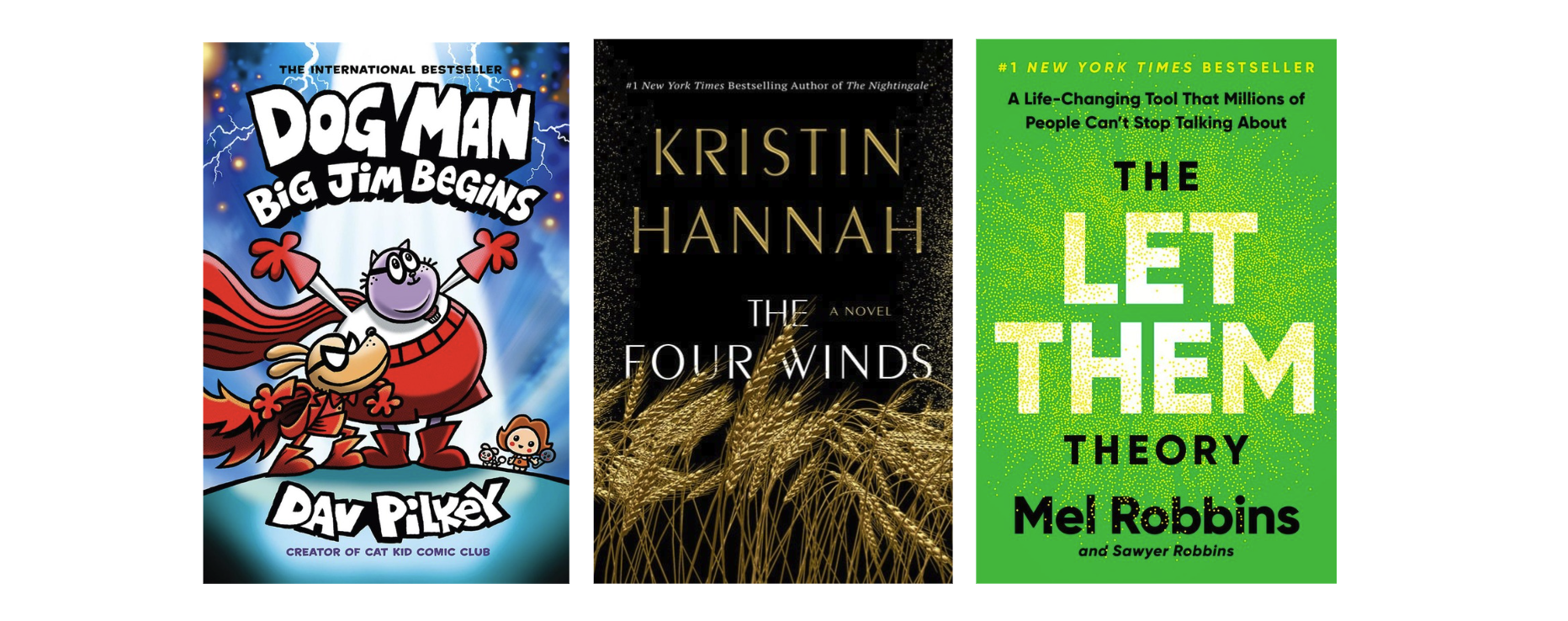Whether you like to think about it or not, if you're producing or distributing data for physical or digital books you're part of the Canadian publishing supply chain. As such, you want to make sure those books are put in the hands of readers. To achieve that goal, you need the help of your industry partners.
There are many ways of communicating your relationship to a book: from traditional marketing efforts to trade-focused communications that extend beyond the metadata (although at BookNet metadata is still the 🐝 🐝 🐝 bee's knees).
But the way we communicate with each other about our relationships to our titles and our publisher client’s titles outside the data hasn't been standardized and the results have been a little haphazard. Oh sure, we all make an effort… but sometimes our efforts fall short. It's hard to know what to do or where to look for guidance on how best to communicate acquisitions and divestments.
At BookNet, we see it all: the perfect, the near perfect, the good, and, well... the rest.
The Book Industry Communication (BIC) group, the book industry supply chain organization in the UK, has a lovely infographic that every data supplier should learn by heart: BIC best practices workflow for acquisitions and divestments. It’s an eight-step workflow describing a data provider’s responsibilities to the supply chain when acquiring or starting to distribute a client publisher. Or, on the flip side, what to communicate when divesting or when a relationship comes to an end.
The infographic is clear and presented well. The whole thing is important, but steps two and three about what one should communicate to third parties when acquiring or divesting a new line are critical:
Step two: 3rd Parties
List of affected ISBNs
List of unaffected ISBNs
Declaration of Transfer
Inform data aggregators
Changes to DRM at ISBN level
Leave no ISBN(s) in limbo
Step three: Transfer Sales Transactions and Reporting
Show Declaration of Transfer to 3rd parties
Order placement process
New bank details to 3rd parties
Returns arrangements
3rd parties acknowledge
In a nutshell: Notify the supply chain when change happens and include these critical pieces of information in those communications. And the partners you've notified should confirm that they've received the message. A simple loop that says “Hi, here’s something you should know,” followed by a “Thanks, now I know it. Message received.” Friendly, courteous, and to the point.
While some might see it as just another bureaucratic hurdle, anyone who is sending data to the supply chain for themselves or for their distributed clients really should try their utmost to engage with these best practices.
There is evidence in the data, when you look at it en masse, that the statement "Leave no ISBNs in limbo" is crucially overlooked in many cases.
Some suppliers have adopted a standard notice and we strongly suggest everyone else do so as well.
What can be done to improve communications? Here are some suggestions:
Send Vendor of Record announcements
Your ONIX data is still absolutely the most critical piece to update when you have a new relationship to communicate. However, a Vendor of Record (VOR) notice tells aggregators when you will be taking over sales and/or distribution. It can be in advance, immediately, or retroactively.
Whether you're a picking up a full line or just some titles, it's critically important that you let the supply chain know that you are now the Vendor of Record and, if known, who the previous Vendor of Record was.
If acquiring, your VOR announcement might include:
The supplier’s legal name for the market
The publisher’s name and any imprints that are part of the line you're acquiring
The date when the supplier will take over sales and/or distribution of the line for the market
If not taking over sales, the name of the partner organization that will provide sales representation from the same date
The contact information for you as a supplier, for ordering and returns
The date at which the former supplier will no longer accept returns
Separately or as part of the announcement, the ISBNs that are affected — usually in a spreadsheet (sometimes we see prefixes, but these days the specific ISBNs affected are better)
ISBNs or prefixes that you did not pick up, if known — provide this information in another tab in the same workbook or in a separate spreadsheet
If divesting, your VOR announcement might include:
Your name as a supplier, and the publisher name and imprints that you are no longer going to be representing
The date when you will no longer be supplying the product
In a separate spreadsheet, ISBNs that are not being picked up and/or those that are reverting to publisher or author rights, or going to a new supplier, if known
The date at which you will no longer accept returns
How do I communicate this to my trading partners and data consumers?
The answer to this question will really depend on your capacity. We suggest that you design a template. It could be a document that is then converted to PDF, or we also see these sent via email. In any case, build up your contact list of trade and business organizations that might need to know about your changing relationships and label it clearly in any subject line as “Vendor of Record notice” or “Change of Distribution.”
Make sure BookNet is on that list! We're in both the data aggregation and data ingestion businesses, so all our products should be aware of forthcoming changes.
Send updated ONIX data
When acquiring or divesting lines or titles, you need to send the message more than once, probably at least weekly for several weeks.
Tom Richardson, our Bibliographic Data Manager, says that a data supplier should be prepared to send out several files with these updates prior to removing titles from their feeds. In a future blog post, Tom will get into what you need to know about keeping your status, availability, and other related pieces of data consistent so that your data is always understood.
Send your active title data at least once a year whether you have changed anything or not
If we had one wish, it would be that no record is abandoned by its publisher and/or supplier.
Too often we see a record submitted once by a publisher who wants to get their title out to the market, but then fails to update the record to indicate whether or not the book is still in print.
It may not be obvious, but to the supply chain’s data aggregation services, data freshness matters. The last date when files contained or updated a record means more than you might think.
Don’t be a Daniel Plainview! Let everyone know you haven’t abandoned your book baby by letting the supply chain know if your book is still available and updating key pieces of information like publishing status, availability, and price if any of that has changed.
Closing thoughts
Everyone is doing their best and everyone in the supply chain has the same goal — to put books in the hands of readers by making sure everyone knows who publishes a book and where that book is available to order or purchase in that big wide world out there.
If you don’t manage your own data, have a conversation with your data supplier to make sure they know that you want your title active and available, or not if your book is winding down or has had its life.
If you do manage data for yourself or others, take time to consider some basic questions:
Have I let people know that I have a new client publisher? Do I communicate consistently about my clients?
Do people know who publishes the books that I supply data for? Do they understand if those books are in print and available?
Do people know that we no longer supply data or manage distribution for these books or these client publishers? Is it clear who has rights to those books? Are we getting calls about books we haven’t distributed for six months?
How do I let my partners know when I pick up or divest a list of books or a line?
If the answer to any of these questions is “I don’t know,” then it may be time to think about how you communicate change to your trading partners.
BIC’s new communication standard supplements an already clear standard in ONIX. The benefit of the communication standard is that you don’t have to be a machine to read the emailed statement or document. More information spread more widely means a more robust data supply chain and that’s a win for everyone.


















Insights into romance trends and the performance of Heated Rivalry.